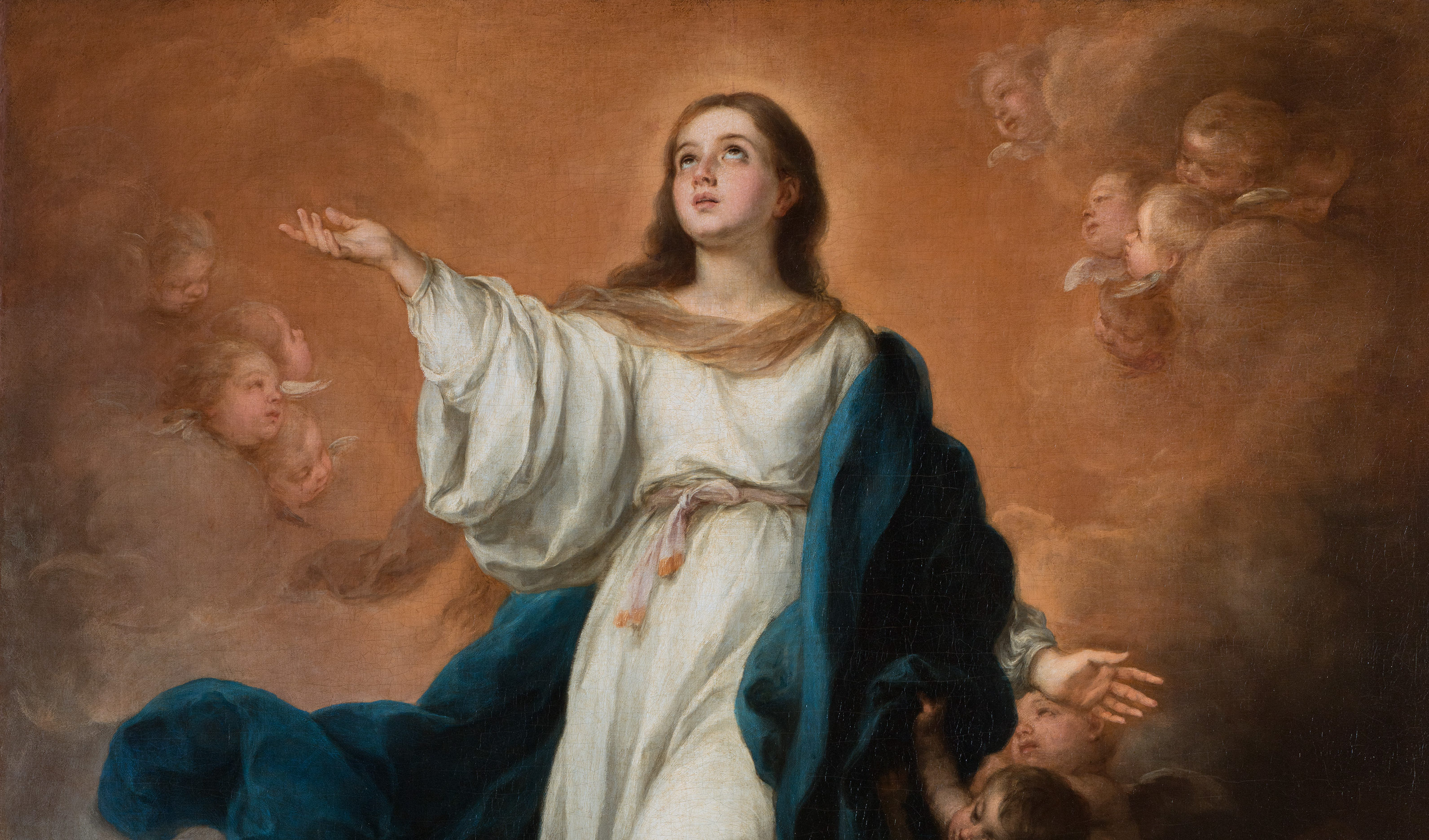The Assumption of the Blessed Virgin Mary

This is the Solemnity of the Assumption of the Blessed Virgin Mary. That Feast is the traditional day for the celebration of First Vows, at the conclusion of Novitiate in the Society of Jesus.
The day calls to mind the vows of Saint Ignatius and his first companions. They professed vows in the Montmontre section of Paris on August 15, 1534.
Jesuits profess First Vows after the two-year Novitiate. It is only later, after the period of Tertianship, that we take Final Vows. I think that August 15 (at least in this part of the world) is the standard date for novices to pronounce First Vows.
According to the Roman Catholic Church, we are celebrating the bodily taking up of the Virgin Mary into Heaven at the end of her earthly life. The Church teaches as dogma that the Virgin Mary having completed the course of her earthly life, was assumed body and soul into heavenly glory
. Pope Pius XII exercised papal infallibility in stating this in the 1950 apostolic constitution Munificentissimus Deus.
The New Catholic Encyclopedia explains that papal infallibility is a dogma of the Catholic Church and states that the Pope is preserved from the possibility of error when, in the exercise of his office as shepherd and teacher, in virtue of his supreme apostolic authority, he defines a doctrine concerning faith or morals to be held by the whole Church.
The Encyclopedia goes on to say that infallibility is more than a simple, de facto absence of error. It is a positive perfection, ruling out the possibility of error. The First Vatican Council defined papal infallibility in 1870.
The statement about the Assumption is the one and only time it has been invoked since that Council. (The dogma concerning the Immaculate Conception comes from 1854, thus predating the First Vatican Council.)
Is papal infallibility controversial? Why yes! But it’s not used very often. As a matter of fact, a strict notion of infallibility is extremely rare.
A lot of the controversy comes from incomplete and inaccurate notions of what it is. Some people mistakenly think that every time he speaks, a pope is infallible.
Sometimes he is just offering his opinion or saying something universally affirmed in a Church document. Matters such as the Immaculate Conception and the Assumption of Mary may cause controversy among theologians, but most of us in the pews don’t lose sleep over i
t.In 2005. Benedict XVI stated during an address to priests that: The Pope is not an oracle; he is infallible in very rare situations. St. John XXIII famously stated: I am only infallible if I speak infallibly but I shall never do that, so I am not infallible.




Vicky Chen
Posted at 02:53h, 15 AugustThank you, Fr. Phil. I always learn a great deal of history from your articles. This one is particularly useful as a reference for catechists.
Bernice Dookhan-Khan
Posted at 08:39h, 15 AugustThanks Fr. Shano for this reflection today. May our lady cover us all with her mantle of love.
God bless. Bernice
Jim Radde
Posted at 11:44h, 15 AugustI love the quote from John XXIII.
Peter Bisson
Posted at 13:37h, 15 AugustThank you Philip!